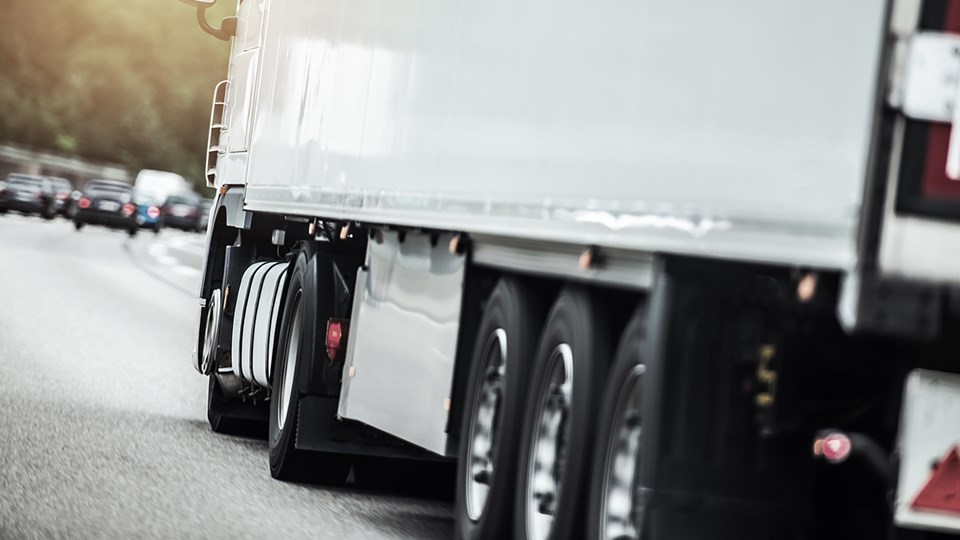What does it cost to transport ten full trailers from Gothenburg to Ghent? CIO Gert Richard Møller talks about the view from the DFDS digital bridge in a time when shipping customers want to order services just as quickly and easily as they book a family holiday.
Every single day, across the North Sea, the Baltic Sea, the Mediterranean and the English Channel, the DFDS fleet of cargo and passenger ships carries hundreds of thousands of people, vehicles and containers. Behind every departure is an ocean of digital workflows, and this is where VP and CIO Gert Richard Møller has a firm grip on the wheel.
In recent years, his focus has moved on from internal systems to the more customer-facing digital touchpoints. Whereas DFDS has been selling their ferry tickets online for more than 20 years, shipping customers have so far have had to talk to a salesperson when ordering container freight. But these B2B customers are starting to have the same demands as private customers and now expect to do their business in just a couple of clicks on their PC or phone.
"If it is too much bother for customers to book freight, get invoices and see the status of their goods, they will choose another supplier or go through freight forwarders. We especially risk losing sales from the small and medium-sized customers. Thus, digitalization at DFDS is very much about cutting out the middlemen and getting more direct customer interaction through high-quality, easy self-service solutions", says Gert Richard Møller.
The price of doing nothing is high
This is why Gert Richard Møller and his team have developed DFDS Direct, which uses artificial intelligence to calculate the right freight price based on factors such as available capacity, customer size and volume of business. The consequences of inactivity in this area can be seen in the hotel industry, where services such as hotels.com and booking.com now take a huge slice of the cake.
"You need to be constantly online and have intelligent systems that can give a reasonable price right away. This is a prerequisite for doing business – because if you are not sharp enough, someone will come along and place themselves between you and your customers. If you want to lose 10-20% of your revenue, just sit back and let others develop the digital solutions. That is exactly the situation we are fighting hard to avoid", says Gert Richard Møller.
Another advantage is that shipping prices can now be determined by an algorithm, and not in the head of a transport salesperson:
"Some customers have exploited the possibility of calling different DFDS sellers to get the lowest price. And that price itself has been based on an individual intuition that nobody can really explain. Now it is far easier for us to make decisions based on a realistic market price, with fewer internal resources required to do so", says Gert Richard Møller.
DFDS aims to be a hybrid company for many years to come
DFDS uses a number of standard SaaS solutions such as Microsoft Dynamics 365 and some homemade systems built as on-premise monoliths. However, the monolith structure is heavy and limits time-to-market. This has propelled DFDS on a journey towards a more flexible architecture in the cloud known as composable architecture.
"We break up the monoliths into components that talk together via APIs. These APIs can also be used with our front-end layers, which gives a greater degree of flexibility. This has been a long journey of 2-3 years so far, and maybe we are only halfway through as breaking up the old systems takes a long time. This, however, is a prerequisite for being able to scale operations and bring in new people quickly", says Gert Richard Møller.
As far as possible, DFDS puts all components and new systems into the cloud. However, cloud does have some limitations. In particular, connectivity is a problem, not least on ships where satellite links are still expensive and have high latency. Even some land-based systems are too important to run purely in the cloud. As a result, Gert Richard Møller expects DFDS to be a hybrid company for many years to come.
"Cloud is only effective as long as there is an internet connection. On an average week in a major terminal like Dover, there are around 90,000 passengers, 30,000 passenger cars and 35,000 trailers crossing the English Channel. The system needs to work, and if the network goes down, we will see queues along the highways within an hour because the port is blocked. This is why we need to have a completely independent on-premise installation with DHTP servers as a localized backup."

